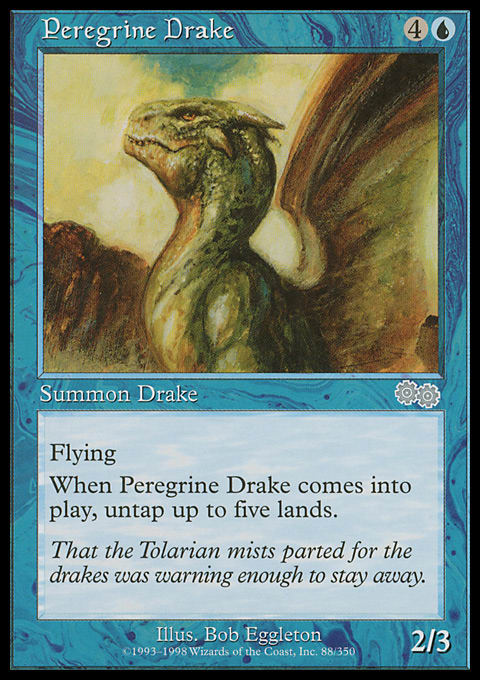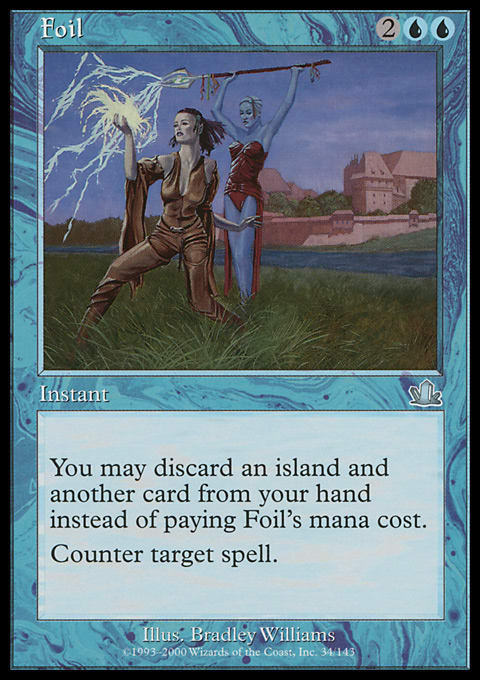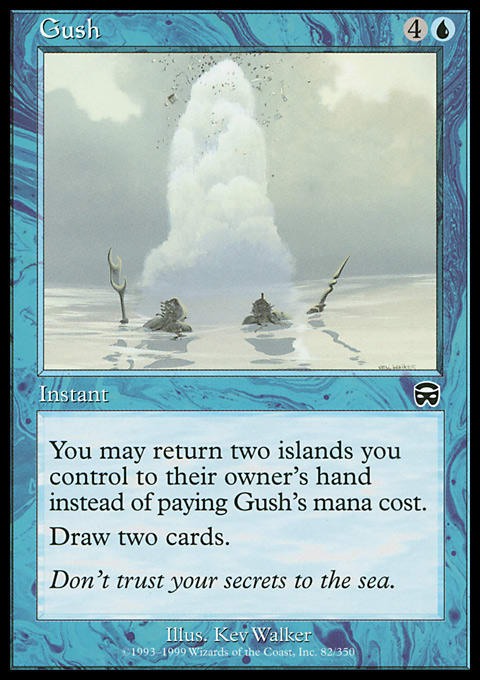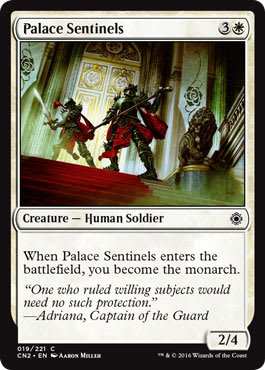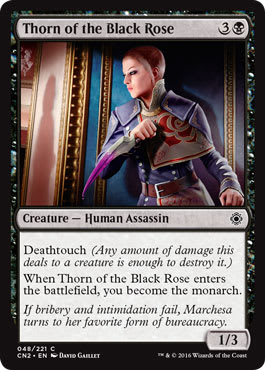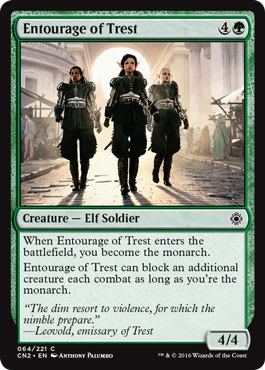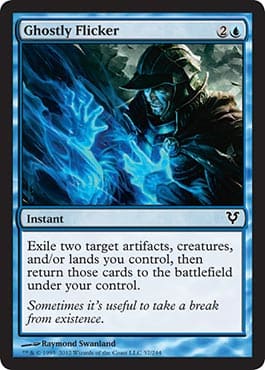On Monday, January 21st comes the Ravnica Allegiance banned and restricted update. Over the last few months, there's been a lot of talk about the health of the overall format. Some players think it's fine, many others less so. The debate has gotten people on both sides of the argument heated and, at times, even a bit combative.
There've been takes from all over including Alex Ullman's recent notorious article, an excellent podcast on the matter from the guys at Color Commontary, and even some more critical pieces from player RedderTory and Italian player Crila Peoty. Beyond even all of this still is the endless slew of non-stop discussions posed to streamers or else on Reddit, in Discord chats, and even just regular old chatter at the local game store. No matter where you go, it's been pretty hard to escape things.
The problem is that no one can seem to come to a consensus on whether or not something should end up leaving the format. Even trickier is that if something were to get banned, it's not entirely obvious what cards should be banned so there's very little agreement on the matter. As such, I'm going to do a bit of a dive on the state of the format, how things have been looking, and what might need to change and why.
The Lead Up
For those of you who may not be quite as well versed in what's been going on in the competitive Pauper scene over the last few years that's brought us to this moment, allow me a moment to bring you up to speed.
To start, the last ban and restricted update for the format came on November 3rd, 2016, when Peregrine Drake was banned. At the time, this was seen as inevitable. For as contentious as the debate of the current state of Pauper is now, the days of Drake makes it look quite healthy by comparison. There were all manner of archetypes around it but the format had rapidly devolved into casting and flickering Peregrine Drake for infinite mana and a quick kill. Others tried to compete and were helplessly pounded into the dirt. Since the banning, however, the format has grown and evolved regularly.
Following the demise of Drake, we saw the rise of Izzet (or Skred) Delver. This seemed like a pretty natural continuation, taking the tempo-oriented shell of Drake and combine it with the ever strong Mono-Blue Delver lists. What made the deck even better was the new addition of Ash Barrens to help with the mana and make Brainstorming that much more profitable. Since then we saw Dimir Flicker and Alchemy rise up to meet them.
Soon after came Stompy and Tron getting beefed up with the help of Modern Masters 2017 downshifts Burning-Tree Emissary and Dinrova Horror, respectively. Around this time the cards with the Monarch keyword first appeared online with the release of Palace Sentinels and Thorn of the Black Rose, with Entourage of Trest to come later down the line. We even saw some cards from Eternal Masters like Elvish Vanguard and Rally the Peasants that were stifled by Drake's dominance get a chance to really shine in decks like Elves and Kuldotha Boros.
By the end of 2017 we had even more downshifts like Lead the Stampede, Seeker of the Way, and Emerge Unscathed. This allowed for Mono-White Heroic to become a deck and for Elves to become a leading player in the metagame. In addition by this point in time we saw a number of decks evolve drastically. The old token-based Kuldotha Boros lists became Boros Monarch, while Tron adapted the Ghostly Flicker method from the days of Drake to work with Dinrova Horror and Mnemonic Wall for its numerous builds. Even lower tier or older favorites like Orzhov Pestilence, Midnight Gond Combo, Inside Out Combo, and even once-boogieman Familiars had new life breathed into them.
We've also had a swath of all new tournaments format cropping up the world over. On May 21, 2017, the first Pauper Challenge event was held on Magic Online. In these events, players brought their favorite decks and played for the champion title. Many different decks have won the event in the last year and a half, though there has long been a prevalence of blue decks near the top.
We saw a similar trend in the first full swiss paper tournaments both at SCG Con and the Grand Prix Championship events at Las Vegas and Richmond. At every one of these, no less than three Izzet Delver lists made it into the top four. While I cannot find a link showing the overall results at Richmond, you may recall that I was a finalist in the event and faced Delver myself in the semi-finals and watched a mirror match play out afterward before the finals themselves. The very first MTGO Pauper Challenge also had similar results with later ones following suit.
This was the start of the debate surrounding the question that's been constantly brought up over the last few months: is Blue too strong in Pauper and if so, how do we nerf it? Even Alex Ullman, now known for his regular calls to ban Gush, was uncertain at first. He wrote a piece talking about three specific angles of the Blue decks that should be hit, including cantrips (specifically Preordain), Augur of Bolas, and, yes, Gush.
The Meta Shrinks
In the time since that piece was written, the format has begun to revolve largely around three primary pillars of the format: Blue decks often utilizing the aforementioned cards (most notably Gush) as their centerpiece, Boros Monarch-based decks, and the various Tron builds.
All three of these decks have until recently created a rock-paper-scissors format at the top of the metagame. Gush-based decks had good game vs Tron, Tron crushed Boros Monarch completely, and Boros Monarch could go toe-to-toe with Gush decks quite effectively. From there, the other decks of the format play to beat one or two of them and everything begins to go back and forth among decks, creating the metagame we've known up until now.
As the format has gone on and more competitive venues have opened, however, the format has been closing itself inwardly towards these three pillars. All three gameplay styles began developing ways to shut down other decks. Boros and Tron both began pushing Fog effects with the likes of Prismatic Strands and Moment's Peace respectively as well as hate cards like Electrickery in the main deck. While this was largely to deal with Delver decks at first, it also hit a number of other decks like Elves. This collateral damage alongside cards like Augur of Bolas and Palace Sentinels creating such a strong blockade with one creature has caused a tremendous dearth of aggro in the format as of late.
Gush decks, specifically the Delver decks, have been preying on this. Often times, Izzet Blitz and Inside Out Combo both go off well before the fogs or other hate can be live. In fact, it's not unheard of for Inside Out Combo specifically to get a turn two kill in vs. Tron by going turn one Plains into Tireless Tribe and turn two Inside Out, discard your hand, and attack. By this point in most games, the Tron player won't have mana available for Moment's Peace and thus is taken out in quick succession.
The Delver decks, however, offer a tremendous amount of consistency. The massive cantrip suite that works alongside Augur of Bolas, Gush, Ninja of the Deep Hours, and to a lesser extent Faerie Miscreant all means you're largely going to find exactly what you want when you need it. As such, it's no surprise Izzet Delver lists were sitting happily on top for so long. What changed was Dimir Delver, aka UBxd (Blue-Black x Drops, "x" representing 1 or 2), showing up on the scene making waves left and right.
The deck, as I discussed in a previous article, was originally Angler Delver, a deck that relied on both your Delver of Secrets flipping as well as filling your graveyard with spells like Mental Note and Thought Scour to quickly Delve into a Gurmag Angler or Sultai Scavenger. The deck fell away hard with the rise of Izzet Delver until a little bit after Pro Tour 25th Anniversary. A couple players decided to reinvigorate the deck and modeled it after the fresh Dimir Death's Shadow list that showed up on the Legacy scene. The changes involved focusing on free spells and getting maximum usage for your cards rather than just throwing them right into your graveyard. Once you have enough of a control on the game, you go in for the Gurmag Angler kill. This deck runs plenty of Dazes, Gitaxian Probes, Snuff Outs, and, of course, Gush.
The deck was already on track for the top, but then Ultimate Masters came out and with it came Foil. In the weeks since, the numbers the deck has been putting up have been nothing short of alarming. Every week since, we've seen large numbers of players near the top. One week we even had five on this specific deck and another in a similar Exhume style shell in a single Top 8! It's even completely taken Izzet Delver out of the picture, having had a whole zero showings in the Top 32 of the January 6th MTGO Challenge and again this past Sunday.
Talking with other competitive players shows tremendous concern that the format is devolving into a battle strictly between Boros Bully, a more weenies-focused version of Boros Monarch, and Dimir Delver. Thanks to Foil, among others, in this new Delver list, it has become much more difficult for Tron decks to battle it back. As such, we've even seen a drop-off in performance in a number of decks as well. This includes but isn't limited to: Bogles, Stompy, Burn, Affinity, Teachings, MBC, Tribe, Blitz, and Dimir Alchemy. They still show up in numbers but in the lower end of Challenge Top 32s as opposed to the top like they have in the past and in much lower quantities.
When looking at the Top 8s of the Ultimate Masters season, however, it's worth noting how intense the disparity is. Of the 48 total decks, 18 were Dimir Gush-based decks, 14 were a Boros variant, and there was also a single Izzet Delver and Tribe in there as well. That means 34 of 48 decks (roughly 70% of the total top table meta) are just two of these main pillars.
Not only is this taking away from that top tier bracket, but it's also warping lower tier lists as well. Red decks have been seen running Pyroblast in the main deck and Relic of Progenitus has also been making the rounds in mains. We've even seen Dimir Delver adapting to this two format notion by running Stormbound Geist, traditionally a sideboard card in Delver lists, in the main deck to deal with the removal and fliers both lists bring to the table. Couple this with, as MTG Goldfish shows, a 20% format representation by Dimir Delver and another near 20% for Boros between Bully (aka Weenies) and Monarch, and you've got what feels like the makings of an unhealthy format.
A Case For Bannings
So now that we're fairly caught up on the situation, what exactly should be done? At this point the obvious ban seems to be Gush from the standpoint of generating too much card advantage for too little while enabling Foil. Others, however, suggest that while strong and possibly problematic, Gush was fine prior to the downshift of Foil. More on that in a moment.
The thing that continuously came up as a mode of concern from major players like all of the aforementioned as well as players in Discord servers, Twitter, and Reddit is that by removing Gush, a pillar of the format, you unbalance things further. The top decks become Tron and Boros and Tron eats Boros decks for breakfast. So then you take something from Tron and suddenly Boros is completely dominant. Decks like my favorite, Elves, have a great matchup against both, however it'll only be a matter of time until those decks bring harder hate like more main deck Electrickeries to fight back. What you're left with is a format that continues to warp around these pillars in an unhealthy manner.
As such, I'm proposing something a bit more radical than most people have said. That is to ban the following from the Pauper format:
- Gush
- Ghostly Flicker
- The Monarch Mechanic (Palace Sentinels, Thorn of the Black Rose, Entourage of Trest)
Now before you break out the pitchforks, hear me out on this one. I first proposed the idea of banning all three on Twitter after getting some input on what was to be my original idea for this piece, a "what-if" on various post-ban environments. I also raised it in one of the Pauper Discord servers I'm a part of following the sending of that tweet.
What surprised me was how cool a number of people seemed to be with regards to the idea. There were a number of people who instantly said yes, it would lead to a better format. Others still suggested other cards be banned or none at all. Some were slightly hostile to the idea but these seemed to be in the minority. Overall, though, the consensus was that these felt roughly around the sweet spot for a potential ban. Let's dive a bit more into the specific rationales of each individual card.
Gush
As far as Gush goes, I feel it's already been explained ad nauseam as to why the card is inherently broken and should be removed on its own merit. Too much card advantage for too little and it even can act as insurance of hitting your land drops, netting you extra mana in the process.
The thing is, there's often a lot of contention with others in the major Gush archetypes. Each of these often comes up in place of Gush as suggestions from the community. The community themselves all have understandably valid reasons for wanting Gush to stay. I've even compared it to Splinter Twin when it was banned in Modern initially over the past few weeks. This isn't to brew debate about whether or not it was right to ban it or if it should stay banned. Rather it's meant to highlight the conflict people have with a card that's truly beloved yet is probably too good for the format as a whole.
The reality is, the card does crazy broken things that can't really be done in any other format. In addition, axing Gush doesn't just hurt decks like Delver but both tremendously slows and de-powers Izzet Blitz and effectively kills Inside Out Combo, which relies on the card draw and land bounce to ensure a lethal strike from Tireless Tribe.
When you look at the other options, however, it's hard to see any other way, especially when you take into consideration Gush's synergy with Foil. These are the other cards people have mentioned and the rationale behind them:
- Preordain/Ponder/Brainstorm: The argument here is simply that the high level of cantrips available to the format allows for wild levels of Xerox-style play and gives Blue decks far too much consistency. For the longest time, Gush wasn't actually the preferred hit, but rather Preordain was, as it has for a long while been the most played card in the entire format. Unfortunately, I feel it's both difficult to choose a specific cantrip to lose without going overboard. You'd have to ban multiple cards and at that point the archetype becomes a husk of its former self. In addition, the Gush and Foil synergy is just too big to ignore.
- Foil: Many players say that the format was healthy prior to the printing of Foil. I believe, having watched the numbers we as players had available and pieced together by players like Alex Ullman and pproteus indicates otherwise, showing the decks that focus on Gush as a whole dominating the format. If you ban Gush, Foil becomes a cute trick that will often times just be an overcosted Counterspell or even Cancel. However, if you ban Foil, then you're left once more with the ticking time bomb that is Gush.
- Augur of Bolas: This creature has appeared to be a problem for many players and aggro strategies since its arrival on the scene. The 1/3 body stops most creatures from getting in effectively, allowing you to live longer and go later in the game to a point where you can maximize dominance on the game. In addition, it can find you exactly what you need when you need it. There's nothing like grabbing a Gush off of an Augur after all.
- The thing is, though, Augur is only good as the cards it can find, and when we're talking cards like Daze, Counterspell, Snuff Out, and of course Gush, the quality of those cards is simply far too high. Cards of that caliber aren't being made for the format anymore so I feel it's less of a time bomb these days, unlike Gush. In addition, aggro decks often have plenty of ways to bypass Augur. Stompy has plenty of evasion creatures, Burn goes to the face largely with spells, and Elves goes so wide that losing a creature or two often doesn't matter by the time you're taking your opponent out.
- Augur is a card to keep an eye on but think is still fine for the time being.
- Delver of Secrets: The argument for a Delver banning is that it's just too good when it flips on turn two. The thing is, though, there has already been players running decks like Izzet Delver, for example, without the Delvers in them and functioned just fine. I can't see a ban doing much to change the performance of the deck aside from making it just a hair less powerful in the the greater meta.
- Ninja of the Deep Hours/Spellstutter Sprite: These cards were focuses of the Mono-Blue and Izzet Delver strategies. These days, however, the Dimir Delver deck runs exactly none of any of these and they've fallen away completely from the format as of now. In addition, while Spellstutter Sprite is frustrating to play against, it helps to keep decks such as Inside Out Combo honest in a format where it might otherwise dominate. As such I don't think they're worth considering.
- Gitaxian Probe: Another card banned in just about every other format, this free spell has gotten the ire from a number of players. As I see it, however, the card was largely used in Izzet Blitz and Inside Out as a way to ensure you have a pathway to victory rather than to gain insight in regards to your opponent's game plan like Dimir Delver does. As such, its true strength is in Delver and not the other two, unlike Gush, which is a major player in all of them.
Based on all of the above, it just feels like Gush is the safest ban overall. When you ban Gush, however, it creates a massive power vacuum. As mentioned before, Izzet Blitz slows down a ton and Inside Out Combo effectively dies. What then happens to the various Delver lists? I believe, as they have in other formats, they can come back from a banning with something like another cantrip, another power spell of some kind unknown yet, or even something crazy like Fathom Seer to mimic Gush. Regardless of what they do, they will be significantly weaker and likely unable to hit the format's new top dogs of Boros and Tron. As such, further action needs to be taken now and rip the band-aid off before we spend the better part of a year doing bans slowly every few months.
The Monarch Mechanic
While the main focus up until now has been Boros Monarch as the format's second pillar, which uses Palace Sentinels, I want to address the mechanic as a whole and its impact on the greater format.
Monarch, as a concept and mechanic, is wild and crazy. It was made for Conspiracy: Take The Crown and was meant for interesting gameplay in free-for-all multiplayer games of Magic. As someone who has played with Monarch both in that Limited environment as well as in games of EDH/Commander, I can confirm it does these things spectacularly and leads to a great, fun time. The problem, however, is that these were designed for a much different form of Magic than what we see and more importantly expect at a competitive, one-on-one level.
One of the biggest complaints about it is that it's problematic simply by existing in the game state in that you can't really interact with the Monarch token ever. You can "interact" with it by dealing damage to an opposing player, sure, but you can't destroy it with, say, artifact or enchantment hate, or even something different. It's not a Planeswalker that you can deal damage to with a spell or anything either. This as a result has a tendency to warp games into a back and forth tug-of-war for the crown.
Unfortunately, the decks that run the Monarch cards are also designed in such a way that they will stop at nothing to prevent you from taking that crown back. The first line of defense is the creatures themselves. All are quite hefty and can block all but the biggest creatures, like Angler or Ulamog's Crusher. In addition, decks that feature Palace Sentinels run Prismatic Strands to stop not just combat damage but all damage from a specific color source as well. You wanted to deal Lightning Bolt damage outside of combat? Think again! One other Palace Sentinels deck, Orzhov Pestilence, also runs numerous life gain effects to help stay in the game longer until it can kill with its namesake.
On the other hand there's Thorn of the Black Rose, which has slotted into many Black decks including Mono-Black Control, certain Dimir builds, and even the brand new Rakdos Monarch/Discard archetype. All of these focus on maintaining Monarch by continuously draining your opponent's resources with removal and discard spells while using the crown to draw more cards than the opponent.
Entourage of Trest is an outlier here. Unlike the others, it currently sees no play. However, if the others were banned, it's likely that people would repeatedly attempt to make it work in the new meta's fresh landscape. It's even highly likely that with Boros Monarch losing Palace Sentinels, Entourage may just be a straight replacement for the deck. While it doesn't inherently run Green, the deck has plenty of fixing and could easily an odd land or two to allow it. Even if the card doesn't make a tremendous impact, the mechanic itself really just has no place in one-on-one Magic at a competitive level (in my personal opinion) and should be removed entirely. While it may be taking out a piece that's currently fairly innocuous, I believe this benefits the format in the long run.
So with that said, what happens if you ban Monarch? The Boros decks essentially revert to their old Kuldotha Boros build or else end up on a retooled version of the newer Boros Bully archetype. Black decks change very little, as they changed only a little to add in Thorn of the Black Rose to begin with. Finally, this leaves one last thing:
Ghostly Flicker
Now that we've tackled the two biggest problems currently dominating the format, we need to examine the final pillar that also needs to be hit: Tron. With this one, we need to take a step back and look at both the history of the deck and this particular card, Ghostly Flicker. The original version of the Tron decks we know today were the Eight-Post (Cloudpost) decks circa 2013. During this time, Ghostly Flicker was run alongside value creatures much like it is today. When Cloudpost got the ax, the Urzatron lands took its place and Ghostly Flicker eventually fell off the map from those decks. In early 2016 we had Temur Tron sitting happily at the top of the metagame as a midrange style deck, where you used removal and the like until you could set up an army of powerhouse creatures like Fangren Marauder and Ulamog's Crusher.
When Peregrine Drake came onto the scene, players once again began to jam Ghostly Flicker in all manner of decks, including a version of Tron, all to make the most use out of the Drake's land untapping ability. The ban came and went but players still tried to make use out of Ghostly Flicker, trying it out in Izzet Tron builds to get tremendous value off of Mnemonic Wall, Mulldrifter, and Sea Gate Oracle leading up to a kill with the likes of Rolling Thunder or a looped Lightning Bolt.
Then came Modern Masters 2017 and with it came Dinrova Horror. This gave Tron players a new payoff condition and within mere days of it hitting the format online, players already put together a list combining the Ghostly Flicker/value creature package with a slew of countermagic, Pulse of Murasa, and fogs in the form of Moment's Peace to ensure you could build up into a win. Eventually, Tron turned to a more control build, leaning in on Mystical Teachings for singleton powerhouse spells that could eventually be looped and returned with Mnemonic Wall to control the board with constant value generation. Others still went all in on the fog aspect, opting to flicker Stonehorn Dignitary over and over again.
So if Tron is such a control heavy powerhouse, what should be banned? I personally feel that Tron itself isn't inherently bad for the format. Decks like Temur Tron and the recent Rhystic Tron don't rely on wild Flicker strategies to win but instead focus on comparably unique ideas to get the job done. As such, I don't think it's wise to ban any of the Tron lands individually.
Ghostly Flicker just seems like it puts in the most work compared to everything else. In case it wasn't apparent when being mentioned above, the card was also frequently used alongside numerous cards that have been previously banned. These cards it worked in conjunction with include:
It's worth mentioning as well that when it was used alongside cards like Cloud of Faeries, it was run in Familiars, which by and large dominated the format. Since the banning of Cloud of Faeries and Peregrine Drake, players have from time to time made attempts to revive the deck. It finally happened when Prosperous Pirates was printed in Ixalan, allowing players to gain infinite mana with ease.
While the deck doesn't run the Pirates so much these days, nor is it in the top tier like it once was, it would still suffer greatly from this ban as the deck likes it when you can target Mnemonic Wall and an Island to continuously recast it over and over. The deck does have other ways it can combo, though, including the use of Snap to bounce back the Wall and untap two Karoo-style lands (like Azorius Chancery) or else use Displace on certain creatures. Which brings me to the last point:
If we're talking about banning Ghostly Flicker, we clearly have to talk about Displace. We straight up haven't seen this card pretty much ever in the Pauper format. The reason? Ghostly Flicker is simply strictly better, and even that isn't run as a full playset because you can both a.) tutor it with Mystical Teachings alongside other things and b.) recur it with Mnemonic Wall or a creature with a similar ability.
At first blush, it seems like it would just make sense to ban this alongside Ghostly Flicker. After all, it still gives you the big hits of Mnemonic Wall loops with other creatures. The thing is, Tron in its current state doesn't always need two creatures to use Ghostly Flicker, nor does it always want to. Unlike Displace, Ghostly Flicker can also target artifacts and lands.
This is majorly impactful as you can flicker the following cards when paired with Mnemonic Wall that you can't with Displace:
- Prophetic Prism (card draw)
- Khans of Tarkir tap lands such as Thornwood Falls or Swiftwater Cliffs (life gain)
- Bojuka Bog (graveyard hate)
- Mortuary Mire (repeatedly return creature from graveyard)
- Serrated Arrows (creature removal)
By using Displace, you limit the lines that Tron can take but don't completely kill it and still give other Flicker strategies a reason, if only a weaker one, to continue existing. For this reason, I move that just Ghostly Flicker should be banned as of now, with an eye on Displace as the new format unfurls.
I do, however, think it warrants a discussion about banning alongside Ghostly Flicker as well and whichever way Wizards might go by, I'm behind it all the way.
Conclusion
In closing, you may have noticed a continual theme with these bannings and the decks that featured them. In some capacity or another, every one of them went hard and heavy on strangling aggressive strategies which is why we were left with a Tempo deck, a Midrange deck, and a Control deck sitting at the top of the format, largely unchanging. There's still a lot of room for Pauper to grow and I hope to see it continue to do so in the new year. The new changes to competitive play on Magic Online give me hope that we'll see it blossom into something bold and new within the coming months.
But as of right now, something desperately needs to change within the format. I hope the team at Wizards is able to make the right decision on this one and take decisive action, especially with the format's first ever Pro Tour/Mythic Championship Qualifier event coming up at MagicFest Los Angeles, as was announced yesterday. In the end, we'll see what happens and I look forward to seeing how the format ultimately shakes out.
As I know this is such a hot button topic, I'd love to see what you have to say on the matter and what you think might be a worthwhile solution. My only request is that no matter who you interact with or where that you do so as civilly as possible. After all, we're all here for the love of one of the greatest community driven formats ever. I hope, as I'm sure many of you all do, for the best in regards to its health.
With that, we wait until Monday to see what happens to our beloved format, and no matter the result, there's sure to be a bright day in the distance for commons everywhere.














